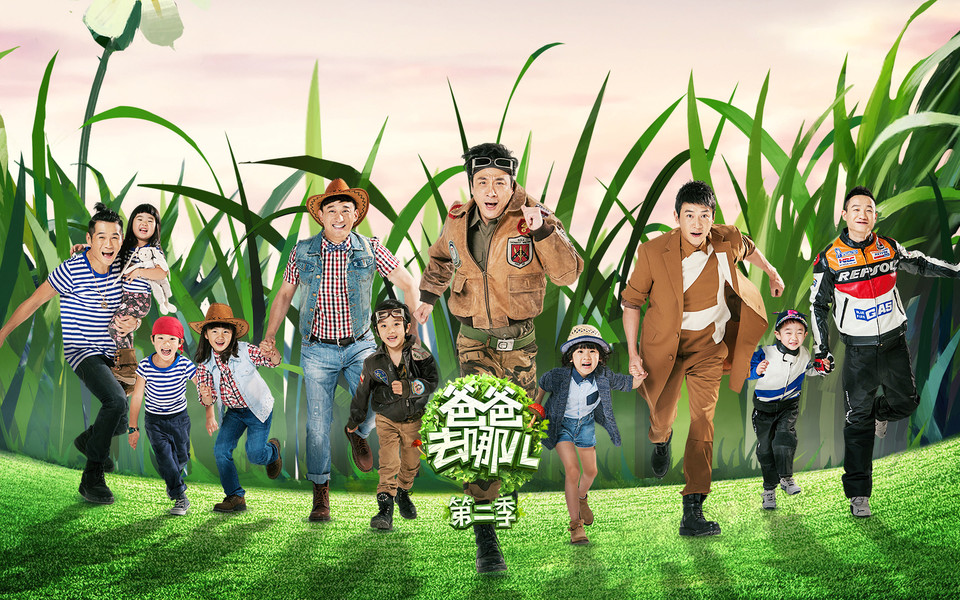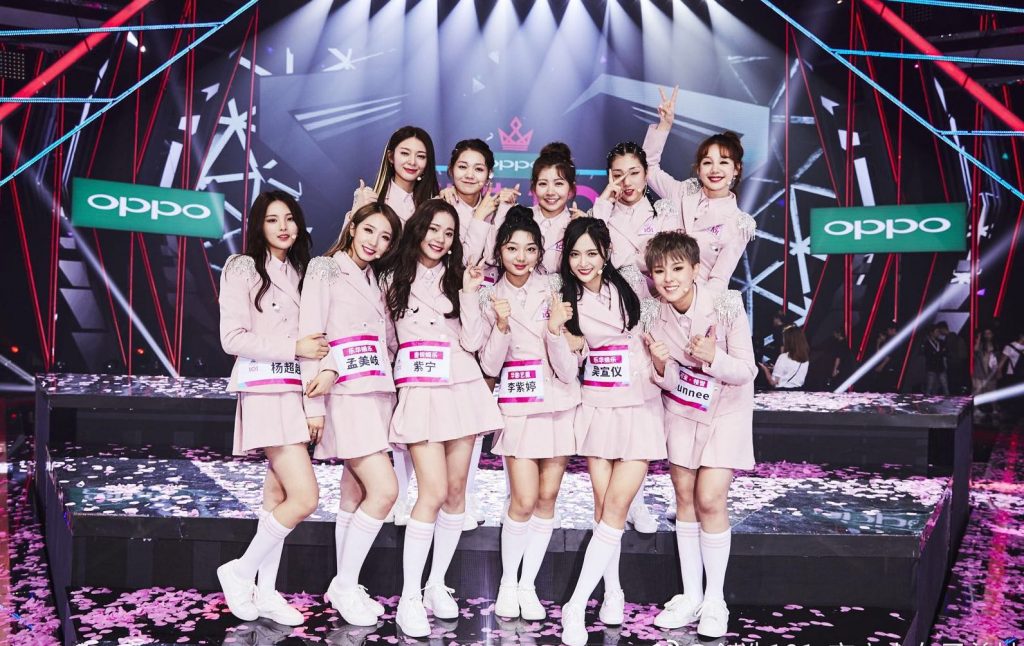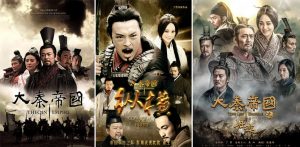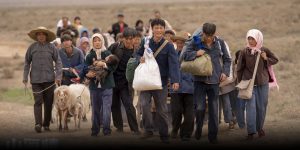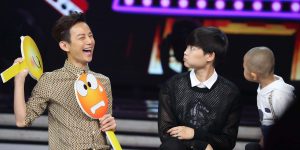South Korean reality series featuring actor and ‘Mission: Impossible – Fallout’ stars Tom Cruise, Henry Cavill and Simon Pegg is only one of many to have been adapted for Chinese viewers.
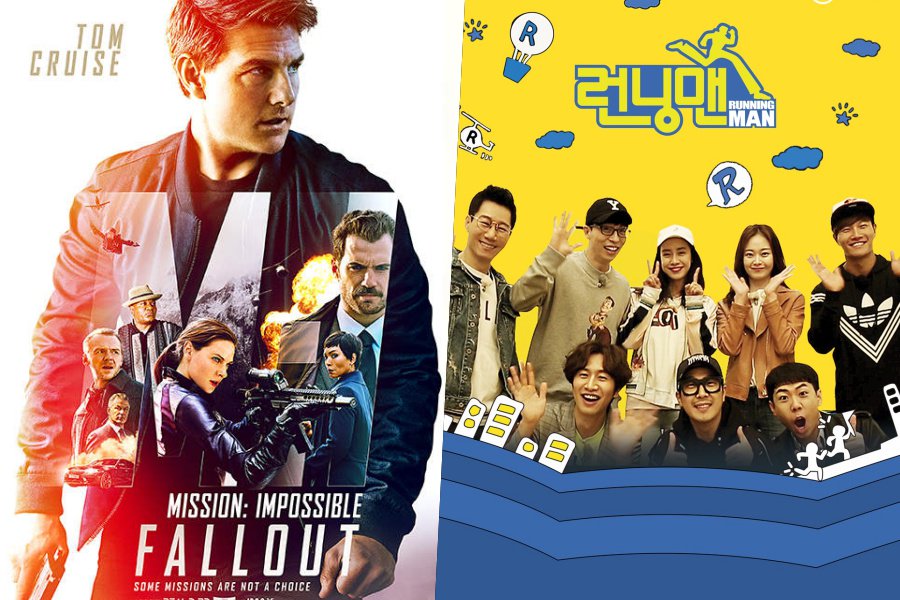
The hit South Korean television reality show ‘Running Man,’ which began in 2010, spawned a successful Chinese remake which was launched in 2014.
When American actor Tom Cruise went to South Korea to publicise his latest blockbuster film, Mission: Impossible – Fallout, he chose to appear in the hugely popular reality television show, Running Man.
The variety show has been a hit not only with domestic audiences, but also across Asia – most notably in mainland China, where the format has been remade into a hit Mandarin-language series.
The success of the Chinese version of Running Man has inspired numerous Chinese television stations to adapt other popular Korean reality show formats for mainland audiences.
So here are our top 10 South Korean television reality shows that have inspired Chinese remakes.
‘Running Man ’
Chinese remake: ‘Running Man / Keep Running ’
Launched in 2010, the SBS television show has proved popular not only in South Korea, but also among “hallyu” or “Korean wave” fans worldwide – thanks to subtitles to episodes created by devotees in many languages including English, Spanish, Portuguese, French, Italian, Arabic, Thai, Vietnamese, Chinese, Malay, Indonesian, Burmese and Russian.
The main master of ceremonies, or MC, of the series is popular South Korean television host, Yoo Jae-suk, who is joined by seven other regular MCs.
The show invites celebrities from South Korea and around the world to take part.
Guests in one recent episode included Cruise and his two British Mission: Impossible – Fallout co-stars, Henry Cavill and Simon Pegg, who certainly looked to be enjoying themselves.
During each programme, the MCs and guests must take part in various missions and games to try to win a continuous race that can last for one or numerous episodes.
The classic final mission is the “name-tag tearing game”, where participants must avoid rival players grabbing a piece of paper stuck to their backs on which their names have been written. The Chinese version of Running Man has added elements of Chinese culture to the format and has featured Deng Chao as the main MC in all six seasons of the programme so far.
The show places great emphasis on the family-like friendship that exists between the participants.
‘Dad! Where are you going?’
Chinese remake: ‘Where are we going, Dad?’
This South Korean reality show invites five celebrity fathers and their children to complete a camping mission in rural areas while playing games.
The show made its debut on MBC in 2013 and the Chinese adaptation of the show, produced by Hunan Television, premiered the same year.
Season 6 of the Chinese show is now being planned.
Past celebrity dads in the Chinese version include mainland Chinese actor Huang Lei, Hong Kong singer and actor Jordan Chan and Wu Chun, the Bruneian Mando-pop singer.
The show has been a big hit in both South Korea and mainland China.
Social media comments have praised the “father and child” dynamic of the programme for offering an interesting alternative to the traditional “mother and child” format.
‘I Am a Singer ’
Chinese remake: ‘I Am a Singer / Singer’
The singing competition, which premiered in South Korea in 2011, invites seven veteran singers at the start of the show to perform on stage and win votes from the audience to avoid being eliminated each week.
New singers are introduced in subsequent weeks.
The Chinese version of the show made by the Hunan Television Company started in 2013 and Season 6 ended in April.
Unlike traditional singing competitions, which invite new faces, the show stars singers who are already working in the music business, which means the quality of the performances is usually high and the audience can watch well-known professionals.
‘Produce 101’
Chinese remake: ‘Produce 101’
Produce 101 is a survival reality television show shown on the South Korea’s music television and youth-oriented channel, Mnet.
Participants compete through group performances for the chance to win a place in the final group line-up – an 11-member girl group in Season 1 and 11-member boy band in Season 2.
The rankings of the contestants are decided by the daily votes cast by the programme’s audience.
In collaboration with Japanese idol group AKB 48, the show’s third season, renamed Produce 48, started in June with 96 hopefuls alongside members of the girl group AKB 48.
The first season of the Chinese version, produced by the video streaming website Tencent Video, ended in June with the formation of an 11-member girl group, led by singer Meng Meiqi.
‘Grandpas over Flowers; Sisters over Flowers’
Chinese remake: ‘Grandpas over Flowers; Sisters over Flowers’
Grandpas over Flowers is a South Korean reality travel show.
Each season sees four veteran actors in their seventies invited to go on backpacking tours abroad on a limited budget.
The first series of the show, which premiered in 2013, was filmed in France.
The most recent series, Season 5, was filmed in Germany, with the first episode aired on June 29.
The first series was such a hit that it spawned a spin-off, Sisters over Flowers, with a similar format featuring four elderly actresses.
Dragon Television bought the rights to make a Chinese version of Grandpas over Flowers in 2014, followed by two seasons of Sisters over Flowers.
‘2 Days & 1 Night ’
Chinese remake: ‘2 Days & 1 Night’
This KBS reality travel series made its television debut in 2007 and is one of the most popular Sunday reality programmes in South Korea.
Each episode sees six MCs go on a two-day trip to interesting places across South Korea and complete challenges using methods such as “Bok-bul-bok” or “blessing-curse-blessing”, which involves playing games such as “Rock, Paper, Scissors” to decide who receives benefits such as food as the winner and who will have to sleep outdoors as the loser.
The show has helped to boost tourism in many of the destinations featured in the programmes.
Sichuan Television produced the first season of the Chinese version of the show in 2014 and Dragon Television produced the second, but the show lasted only two seasons before ending in 2015.
The MCs of the show included popular Taiwan reality show host Jacky Wu, Korean singer Kangta and veteran Chinese actor Zhang Fengyi.
‘We Got Married’
Chinese remake: ‘ We are in Love’
The MBC reality series, which aired between 2008 and 2017, paired celebrities who had to pretend they were couples while completing various romantic challenges.
The participants were usually well-known South Korean stars, so their interactions attracted many viewers and ensured the programmes were a big success.
The Chinese version of the show first aired on Jiangsu Television in 2015 and Season 4 is currently being prepared.
Famous couples to have been featured include Korean boy band singer Choi Si-won and Chinese supermodel Liu Wen, Hong Kong actor Shawn Yue and Chinese actress Zhou Dongyu and Taiwanese Mando-pop singer Wilber Pan and Chinese television host Wu Xin.
‘Real Men’
Chinese remake: ‘ Takes a Real Man ’
In this reality show, which debuted on MBC in 2013, eight celebrities have to experience military life.
The production of the show lasts more than one month, during which time the celebrities experience real military training such as driving a tank and shooting guns.
Two seasons of the show have been broadcast so far – with a third now in production – featuring both male and female stars.
The Chinese version of the show made by Hunan Television is co-produced with the People’s Liberation Army.
The second season featured well-known Chinese actresses Yang Mi and Tong Liya.
‘Mystery Music Show: King of Masked Singer’
Chinese remake: ‘Masked Singer ’
This reality television singing competition started as a special one-off programme during Spring Festival, but was turned into a series after it was a rating hit.
Contestants must wear masks to conceal their identities, which will be revealed only when they have been eliminated.
Each contestant goes through three rounds of challenges and competes for the title of “Mask King” after every two episodes.
The Chinese version was produced by Jiangsu Television in 2016.
Judges included the Malaysian singer Eric Moo, Taiwanese singer Annie Yi and Chinese singer and television host Deon Dai.
‘Non-Summit/ Abnormal Summit ’
Chinese remake: ‘A Bright World ’
The JTBC talk show Hangul – the South Korean term for the Korean alphabet – is known in English as Non-Summit and also Abnormal Summit and features a panel of foreign men discussing issues concerning Korean society and culture while speaking Korean.
The show’s format is supposed to be humorous and aims to emulate a meeting of world leaders.
The first programme was shown in 2014 and the series lasted for 177 episodes before ending in 2017.
The programme adopted the same format, which saw young people from 11 different nations invited to discuss important matters affecting China in Mandarin.
– This article is originally appeared on South China Morning Post’s STYLE


